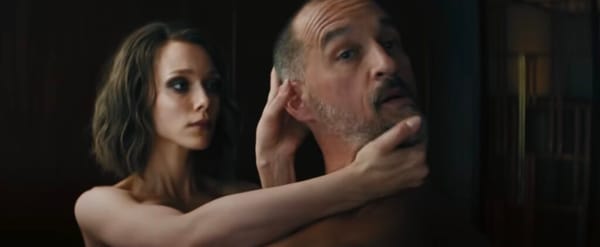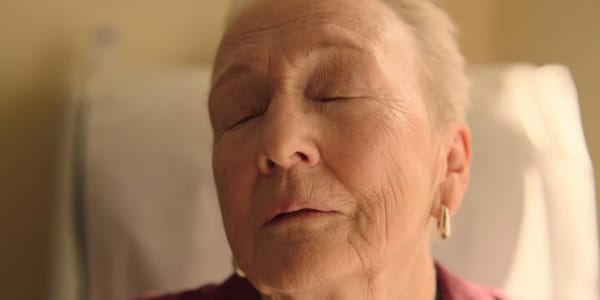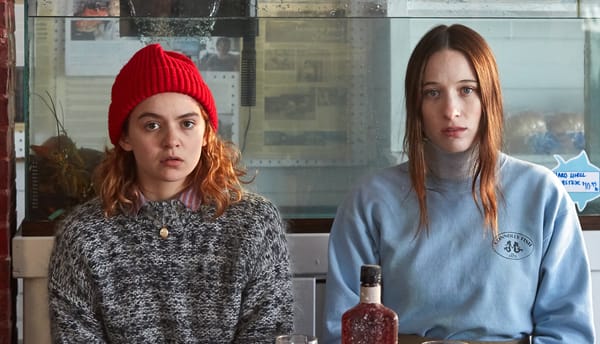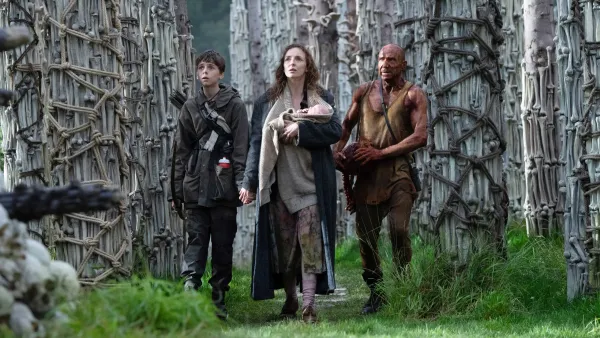Mum's The Word
"The Lost Daughter" explores the resentments of motherhood with surgical skill and two great performances. Also: "Nightmare Alley" and "Swan Song."

The Nut Graf1: “The Lost Daughter” (in theaters and on Netflix 12/31, **** out of ****) is an eerie psychological portrait of damaged motherhood, with great performances from Olivia Colman and Jessie Buckley. Guillermo del Toro’s remake of “Nightmare Alley” (in theaters, **1/2 stars out of ****) is a visually rich carny fable, but the 1947 original is still the champ for gonzo noir craziness. “Swan Song” (on Apple TV+, *** stars out of ****) gives you two Mahershala Alis for the price of one.

“The Lost Daughter,” which opens theatrically today and comes to Netflix on New Year’s Eve, turns out to be one of the year’s very best movies – a spookily complex character study of a woman who’s either a terrible mother or who can’t forgive herself for not being a better one. The talent involved is substantial: The film’s based on a novel by Elena Ferrante and is the directorial debut of actress Maggie Gyllenhaal; it stars Olivia Colman and Jesse Buckley as the same woman, Leda, in middle age and in her twenties. Colman is her usual obdurately translucent self, but Buckley is a revelation, or will be to anyone who didn’t see the actress’ star-making performance in “Wild Rose” (2018), HBO’s “Chernobyl” (2019), or in Charlie Kaufman’s “I’m Thinking of Ending Things” (2020).
The Colman scenes take place in a beachfront resort on a Greek island (the film was shot on Spetses, off the coast of Piraeus), where Leda is taking a vacation from her job as an English professor in Cambridge, MA, which is her way of saying Harvard. Her solitary bliss is spoiled by a loudly intrusive clan that includes a young woman, Nina (Dakota Johnson), and her three-year-old daughter. Nina is clearly not up to the task, and Leda watches her through an increasingly obsessed eye as “The Lost Daughter” flashes back to her own years as a fierce up-and-coming academic, where her two children (Robyn Elwell and Ellie Blake) are a distraction from her ambitions to the point where she takes a leap off the cliff of parenting, hoping to fly.
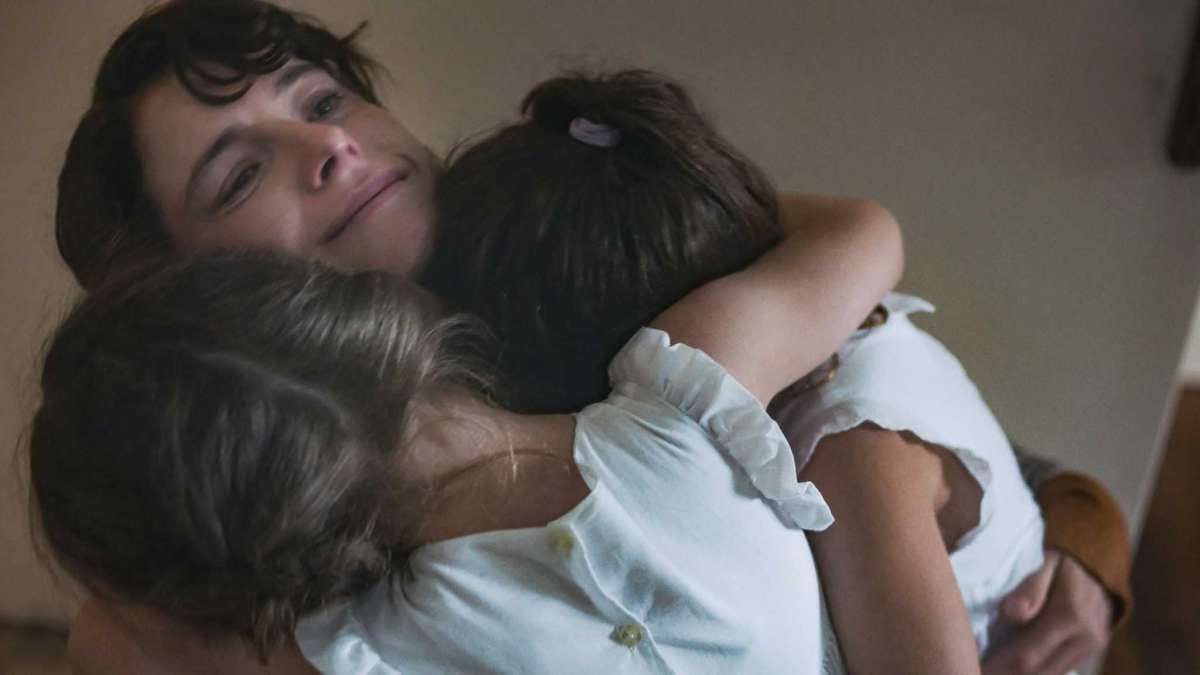
The movie confronts and explores the ambivalences of motherhood with a nuanced scalpel, Buckley’s Leda doing the damage and Colman’s reflecting the damage done. Yet as much as we may be inclined to judge Leda — in the past for pursuing the white heat of intellectual (and sexual) life at the expense of family and in the present for an act that seems inexplicable until you consider the film’s title — the twinned performances testify for the defense by their prickly, fully felt vitality. Ed Harris, Peter Sarsgaard (a.k.a. Mr. Maggie Gyllenhaal), Paul Mescal, and Joe Farthing are men who factor into some of Leda’s decisions yet ultimately mean little to her inner life, and inner life is what Gyllenhaal and her leading actresses are eerily able to capture on film. The ending of “The Lost Daughter” is muted and just the slightest bit unsatisfactory, even if it suggests that the flashbacks we’ve seen may be Leda’s most self-loathing memories and therefore unreliable. But the movie as a whole lingers unsettled in the mind and in the senses, as good movies often do.
(Incidentally, the Boston Society of Film Critics, of which I’m a member, met last Sunday to select the group’s annual year-end awards. We voted Maggie Gyllenhaal Best New Filmmaker of 2021 — the award is given in memory of founding BSFC member David Brudnoy — and Jessie Buckley was named Best Supporting Actress. Colman was a heavy favorite in the Best Actress voting, and Dickon Hinchliffe’s soundtrack, which swoons like dreamy 60’s-movie music with a dark undertow, was in the running for Best Score. The rest of the awards can be found at the BSFC’s website.)
The other major theatrical release this Friday is Guillermo del Toro’s “Nightmare Alley,” a remake of one of the darkest, strangest movies to ever come out of Hollywood’s Golden Age. You can see how the 1947 original, with Tyrone Power playing a soulless carnival worker who rises high and falls fast, would appeal to the director who made “The Shape of Water” and “Pan’s Labyrinth,” and del Toro turns what was a black-and-white nightmare noir into a colorful, muscular mood piece. Yet I’m still not convinced this particular story needs to be retold, since taking it out of the time and place of its making robs the new film of much of its punch. Bradley Cooper is fine as the morally shady hero, who steals a sideshow mentalist act that he refashions into a high-society sensation, but part of the shock of the original movie was seeing the blandly handsome Power cast as a dirtbag who descends into geekdom step by step. The new “Alley” also brings on Toni Collette in the old Joan Blondell role of Power’s carny mistress but gives her little to do and squanders the always welcome David Strathairn in the role of her alcoholic husband (an amazing Ian Keith in the earlier movie).
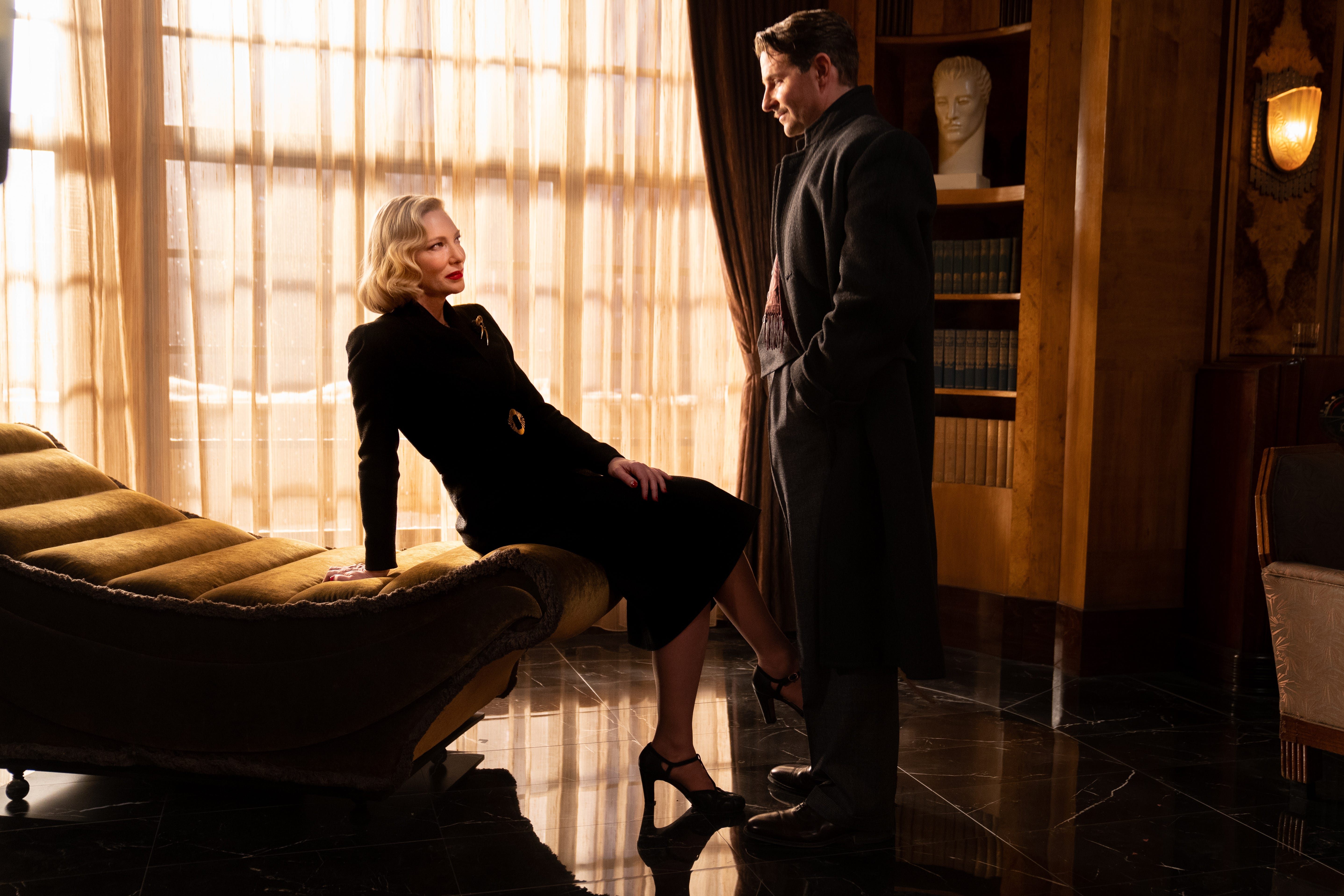
But points for casting Cate Blanchett as the swank uptown psychiatrist who becomes Cooper’s partner in crime. (Hint: Never trust a woman named Lilith.) In 1947, the part was played by Helen Walker, an actress completely forgotten today, and she’s mesmerizing – a coolly confident Venus flytrap whose motives remain mysterious to the end. Blanchett honors that interpretation and gives Dr. Lilith an even harder shell. The movie as a whole is a ravishing visual feast, as you’d expect from this director, but sometimes you can do noir with less.
If you’re not inclined to go to a theater and you’ve never seen the 1947 “Nightmare Alley,” I couldn’t recommend it more highly. It’s currently streaming exclusively on The Criterion Channel but can also be found on DVD. If nothing else, the movie decisively settles the issue of where geeks come from.
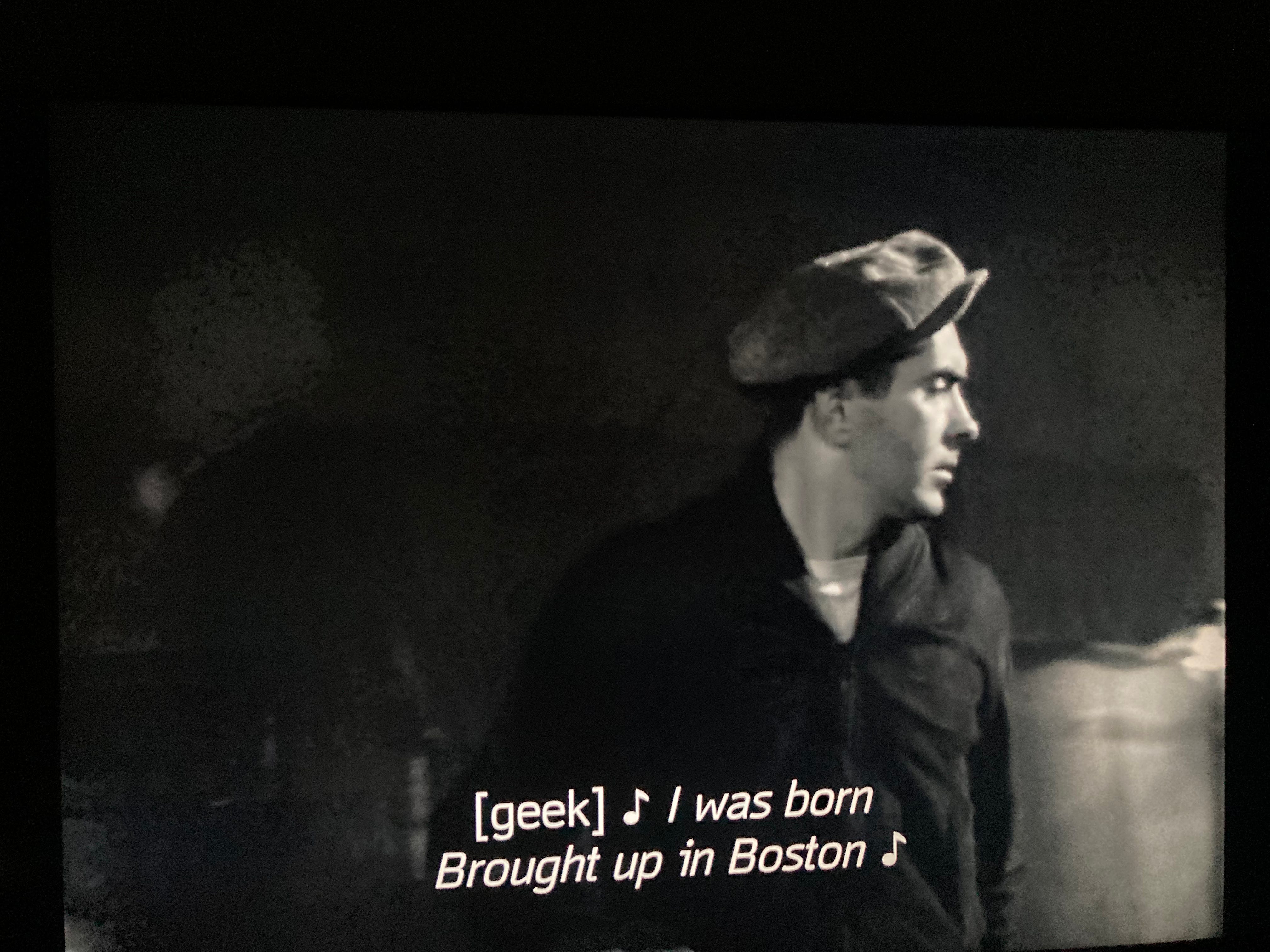
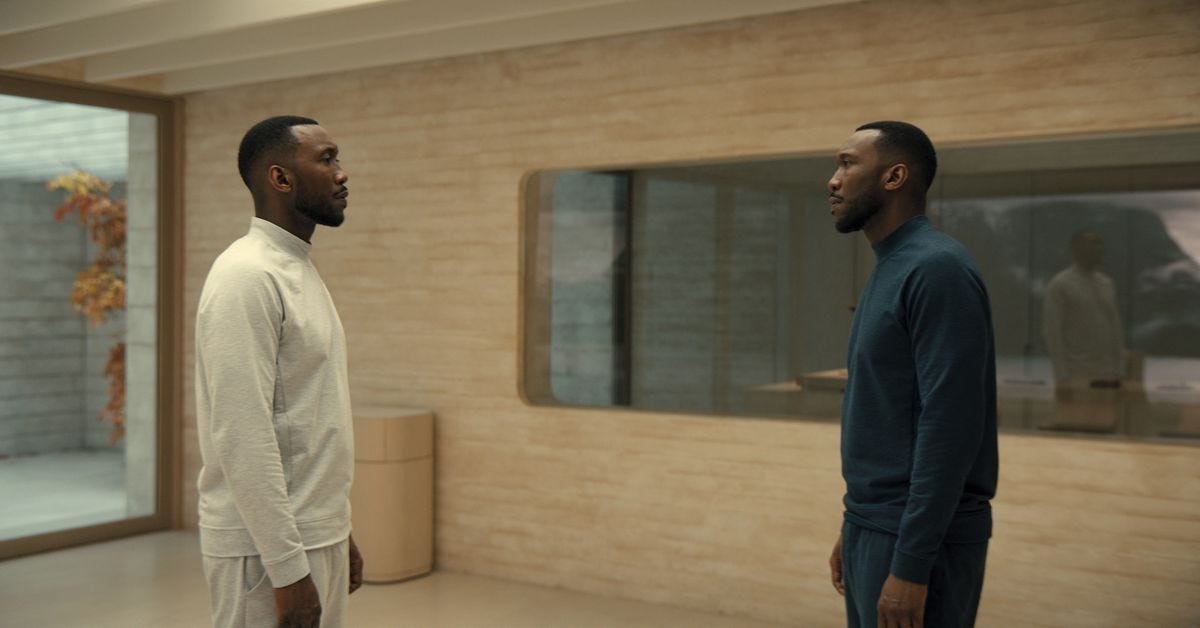
Friday morning addition: I got a look last night at “Swan Song,” an Apple TV+ original that premieres tonight, and can recommend it for three things. One: For Mahershala Ali (“Moonlight,” “Green Book”), who is always worth your time and doubly so as a terminally ill man who agrees to be cloned so his wife and son and unborn child can carry on without being aware he’s been replaced. Two: For the day-after-tomorrow production design, courtesy of Annie Beauchamp, in which everything is just a bit sleeker, more ergonomic, and more electronic than now. (They’ve figured out self-driving cars, too, and I want one.) I love it when movies — Spike Jonze’s “Her” is another example — play with the very near future because the differences can be so subtle and spotting them becomes a form of in-movie game. Three: For the whole goofy/philosophically mind-blowing concept of meeting and coming to terms with your own double (courtesy of a kindly mad scientist played by Glenn Close!). You can see Ali digging deep into his character’s(s’) conundrum: If that other guy is me, then who am I? Am I no longer unique? Does identity not exist? Roll over, Sartre, and tell the Buddha the news. Written and directed by Benjamin Cleary, “Swan Song” gets a little pokey and awfully teary in its last act, but its pop metaphysics may live inside your head for quite a while. Show it to your teenager, the really serious one, and buckle up for any ensuing conversations.
Coming next week: A funny and charming conversation about Christmas movies with Amy Dickinson of “Ask Amy” and “Wait Wait… Don’t Tell Me!” fame.
If you enjoyed this edition of Ty Burr’s Watch List, please feel free to share it with friends.
If you’re not a paying subscriber and would like to sign up for additional postings and to join the discussions, here’s how:
If you’re already a paying subscriber, I thank you for your generous support.


